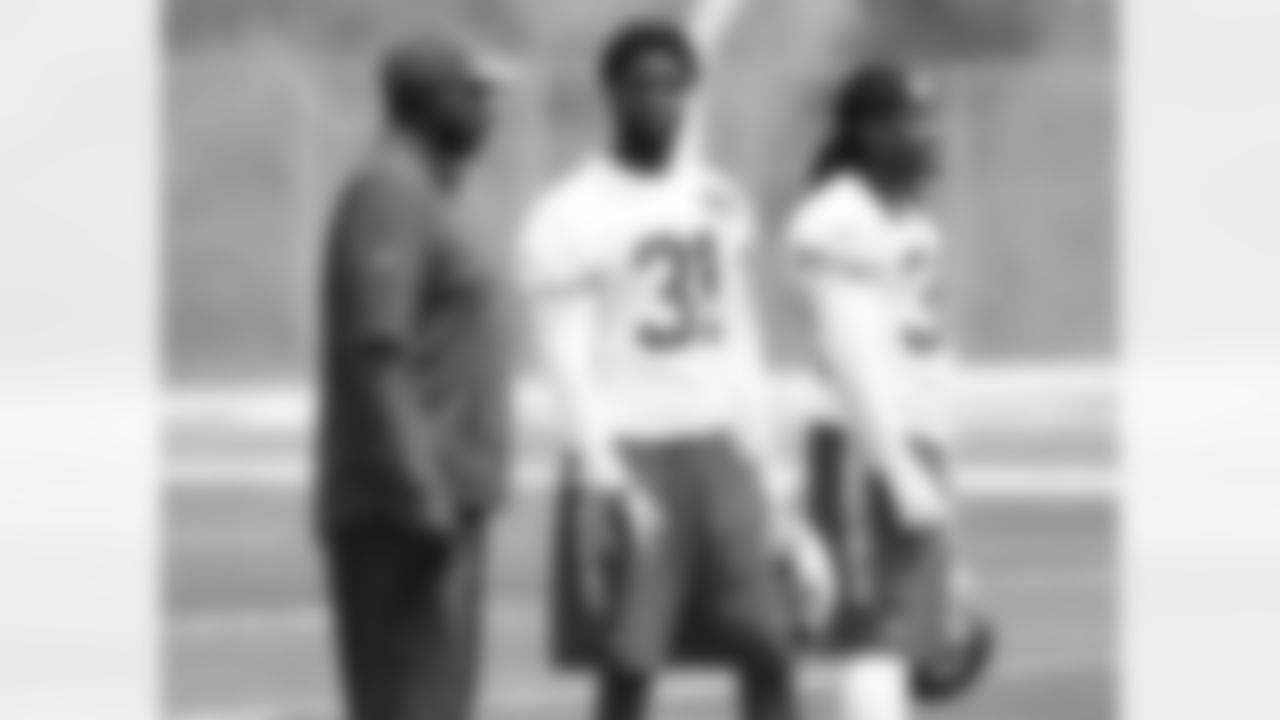His name became synonymous with playmaking sometime between the first snap of his career, his first game at Arrowhead Stadium and the first playoff game of his career.
In each of those instances, then-rookie cornerback Marcus Peters made a game-changing play via an interception, and he eventually finished tied for the NFL lead in the category with 8 on the season.
The 26 passes he defensed on the season was not only a franchise record, but also the best mark in the NFL.
All of this helped him win the NFL's Defensive Rookie of the Year award, earn his first Pro Bowl honor and make the All-Pro second team.
His peers also just recently named him the 65th best player in the NFL on a vote.
If you're looking for the right way to jumpstart an NFL career, look no further than what Peters did last season, and now he said he is ready to make his name as one of the best in the league.
"I'm trying to go out there and continue making the statement I made to my team that I'm here to help this team win games," Peters said. "Also to let everybody know that the Chiefs are here to continue this every year. That's all that matters to me.
"I'm trying to win as many Super Bowls as possible. You only get to play in this league a certain amount of years and you've got to take advantage of them."

All that said, Peters is now being counted on for more than just his playmaking ability.
He returns in 2016 with more than three times as many snaps played at cornerback than any other player on the roster outside of Ron Parker, who only slid down from his safety spot last year because of the injury to Phillip Gaines in Week 4.
The Chiefs lost veteran Sean Smith in free agency this past offseason, so the responsibility to lead the team's cornerbacks, who have an average age of just 23 years old, has now fallen onto the accepting shoulders of Peters.
"We didn't finish how we wanted to finish last year, so we're hungry," Peters told reporters on Wednesday. "Every year you come into it with the same mentality – I want to ball. I want to go out there and make sure my presence is felt on the field.
"I want to make sure I earn respect each and every play, each and every down throughout the year."
Peters was one of only four players on the Chiefs defense to finish with more than 1,000 snaps played, and besides Parker, the only other players with experience from last season at cornerback were Steve Nelson (53 snaps), Marcus Cooper (94 snaps) and Gaines (167 snaps).
The Chiefs added a lot of young talent to the room in selecting Notre Dame's KeiVarae Russell, Minnesota's Eric Murray and Georgia Tech's D.J. White in the 2016 NFL Draft.
"We think they're good players," Chiefs coach Andy Reid said of the three rookies after Thursday's OTA practice. "We just have to see how they'll progress."
Part of that progression will be helped along by the leadership of Peters, who is willing to do whatever to help bring these young players along.
"If they need some help, we're all here to help them," he explained. "That's all Sean [Smith] did (for me). We have some excellent leaders here with Ron Parker, Phillip Gaines and we have [Eric Berry] – he's an amazing leader.
"We're going to have a great relationship inside that defensive back room, and we'll just grow together."
A look at the defensive backs during the Kansas City Chiefs offseason OTAs.
















In addition to the three guys taken in this past draft, the Chiefs added three cornerbacks in the two drafts before that as well, with Peters and Nelson being selected a year ago and Gaines the year prior.
In fact, eight of the 12 cornerbacks on the Chiefs roster right now are 23 years old or younger, and only two—Keith Lewis at 27 and Marcus Cooper at 26—are above the age of 25.
All of that youth doesn't concern Reid.
"That's just one of the positions around the league that guys will be able to step in and play (at a young age)," he said.
Reid is counting on Peters' leadership this season.
"He's got natural leadership qualities," Reid said of Peters. "He's not loud, but he's willing to share with the younger guys. The way he competes—his instincts, how he studies—all those things the guys can get a feel on."
But Reid also understands the challenges that await Peters in his second year.
"The one thing [Peters] hasn't experienced is the staffs around the league having a year to study him. Now you've got to step and this is where you find out—those first three years, you find out if a player can sustain through that. You've got to push through those first three years."
Peters' response on what he expects as teams have had a year to study and adjust to him?
"Just come at me and we're going to see."













